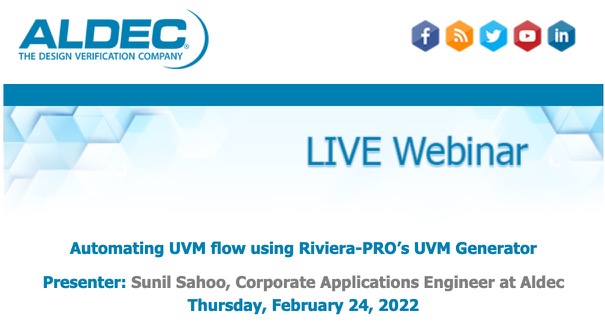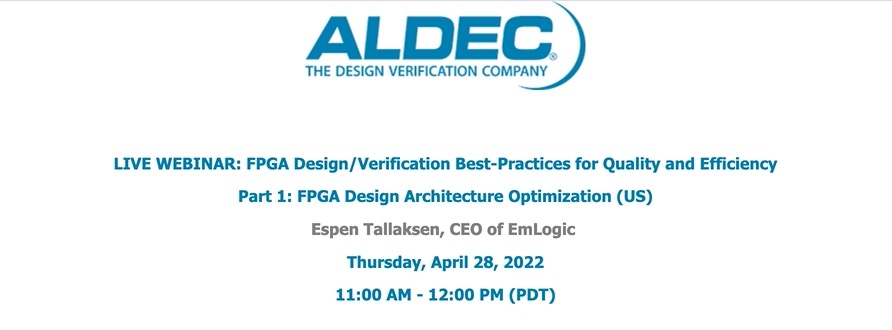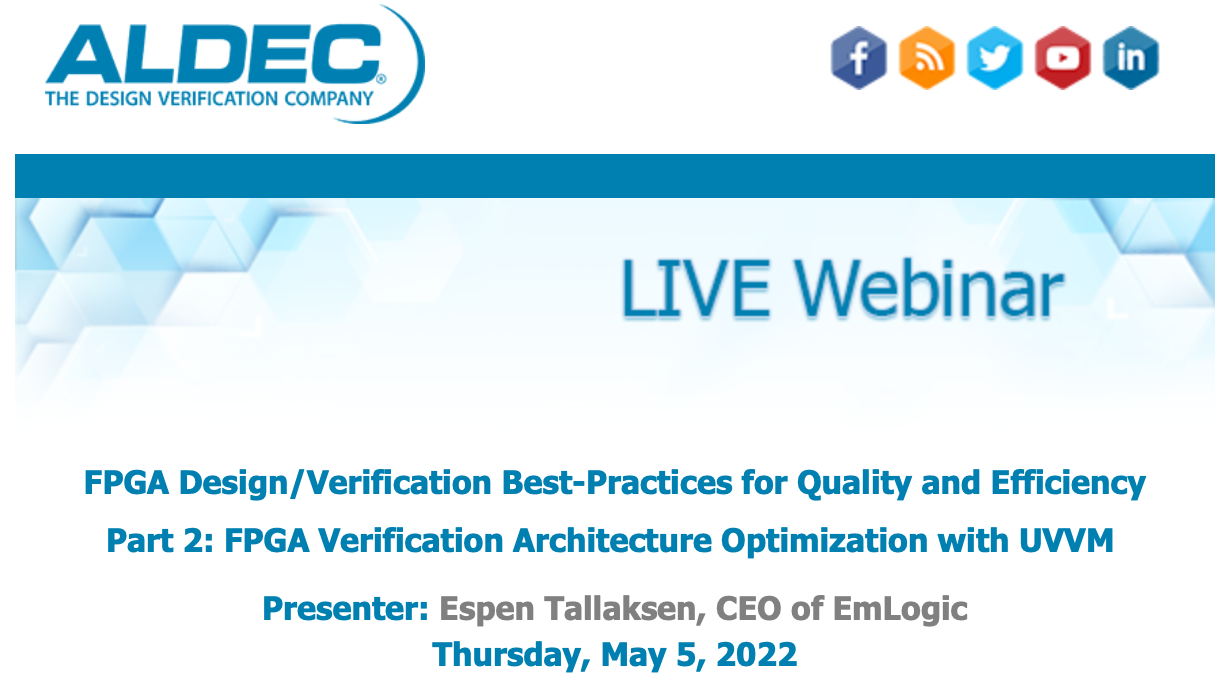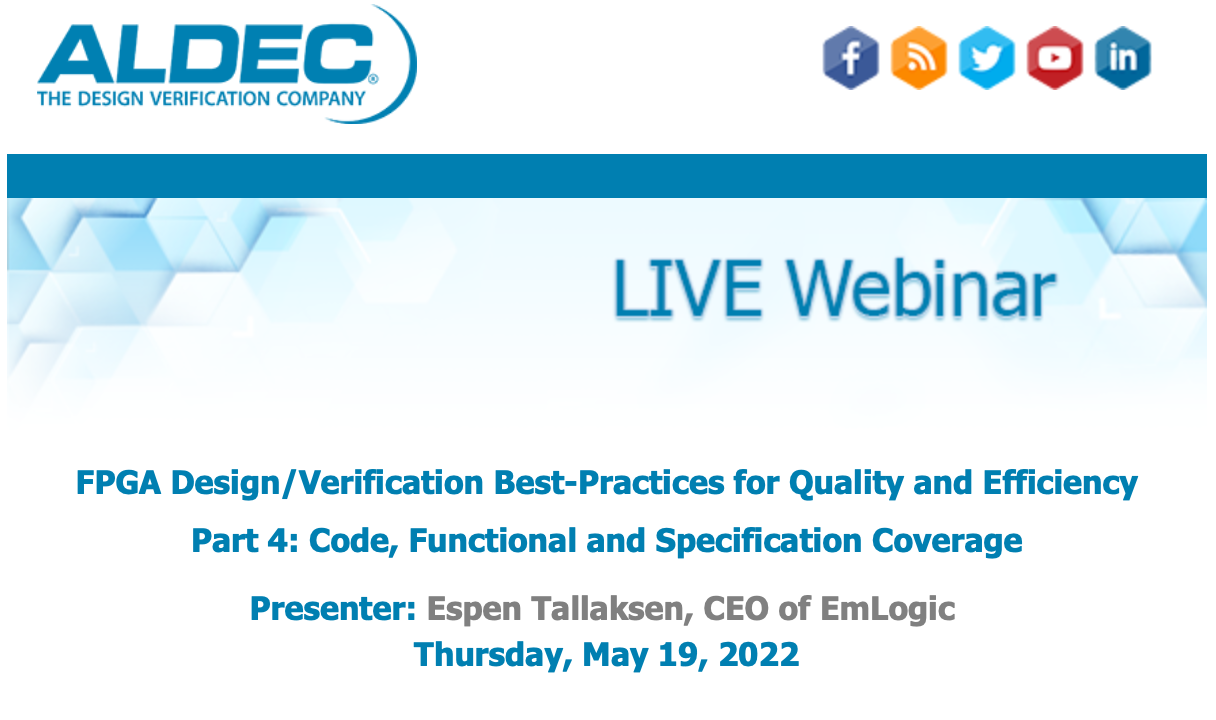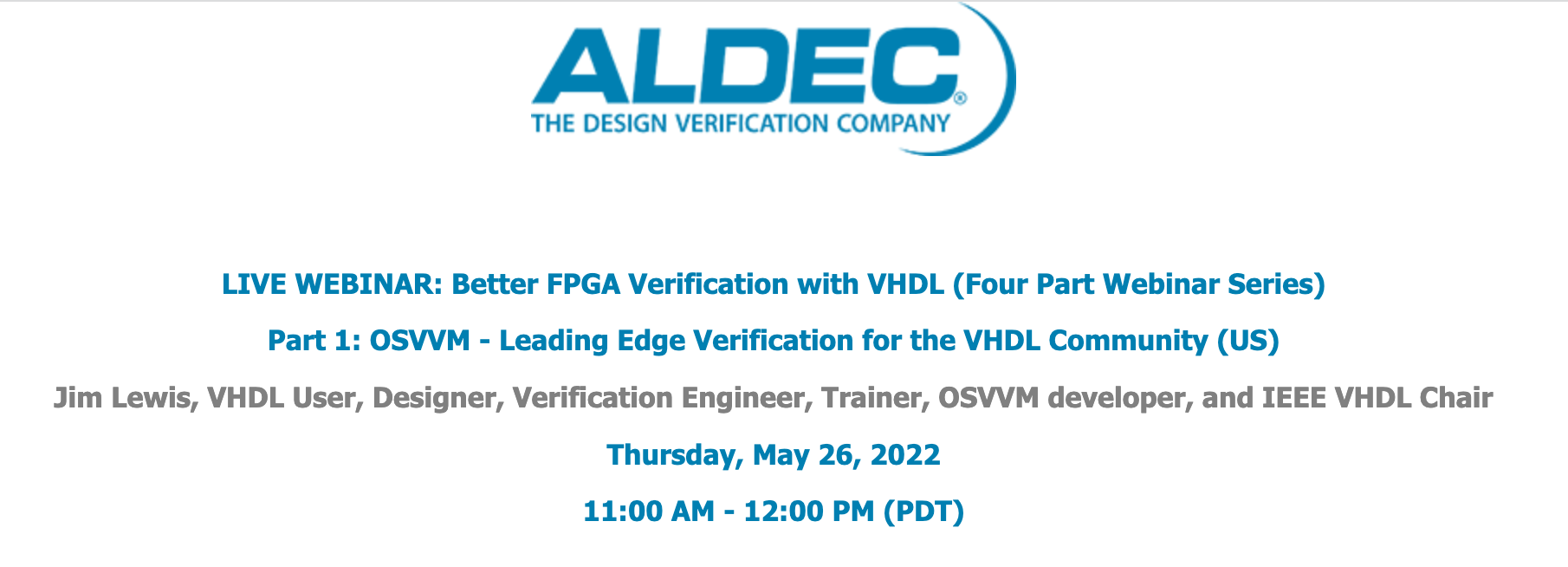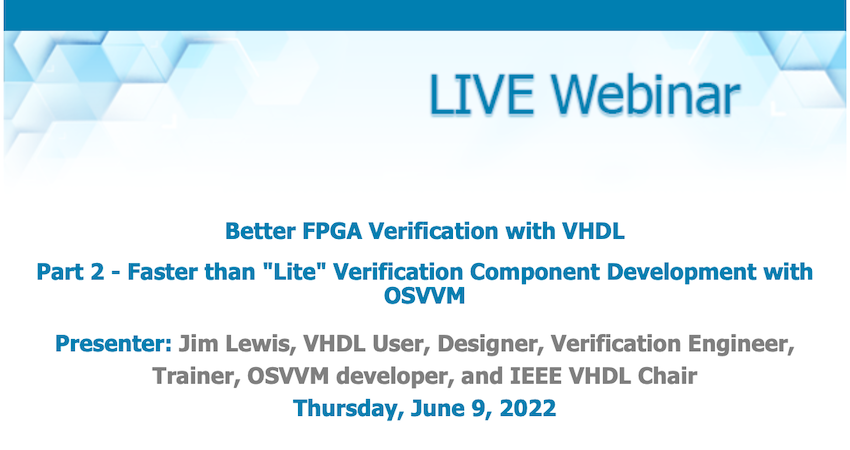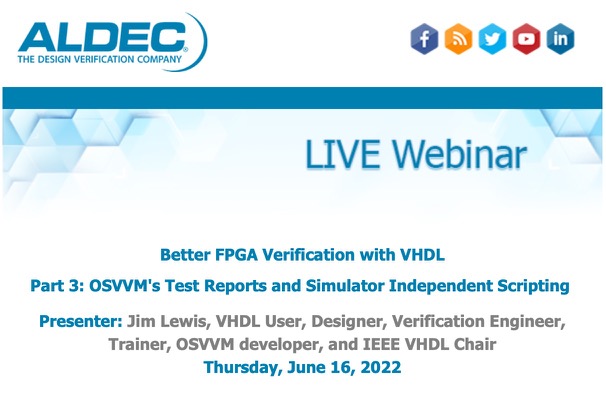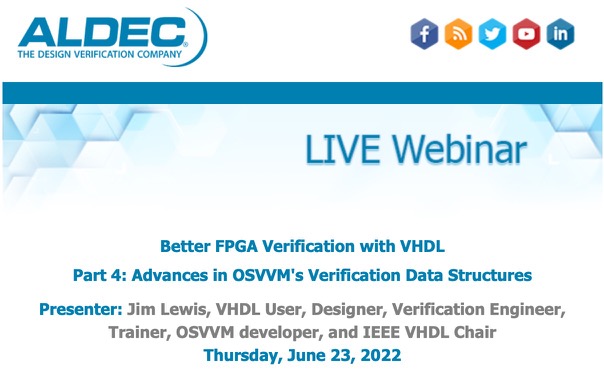Aldec
Automating UVM flow using Riviera-PRO’s UVM Generator
UVM is a versatile verification methodology that enables users to run advanced verification flows for large scale FPGAs and SoC FPGAs. However, because of its advanced nature, writing UVM from scratch can be a complex and tedious task. Riviera-PRO’s new UVM Generator feature alleviates some of the complexity by automatically creating the UVM testbench for… Read More »Automating UVM flow using Riviera-PRO’s UVM Generator
FPGA 22
The ACM/SIGDA International Symposium on Field-Programmable Gate Arrays is a premier conference for presentation of advances in FPGA technology. Accepted papers will be published in the conference proceedings and available in the ACM Digital Library. Virtual Conference February 27 – March 1, 2022 Registration now open at: www.isfpga.org/registration Statement from the General Chair: We have made… Read More »FPGA 22
Using SVA for Requirements-Based Verification of Safety-Critical FPGA Designs
Requirements-based verification (RBV) is a popular verification process for FPGA designs used in safety-critical systems. The effectiveness of RBV is limited by the quality and precision of the requirements. Verification techniques such as constrained random verification with assertion-based verification (ABV) can be used to help identify ambiguous or incomplete requirements early in the design and… Read More »Using SVA for Requirements-Based Verification of Safety-Critical FPGA Designs
Running CDC Analysis with Xilinx Parameterized Macros
Designing FPGAs that use a single clock domain is a luxury that very few of us have. Modern FPGA designs must cope with multiple clocks running at different frequencies, very often asynchronous to each other, and still be expected to work reliably. Xilinx Parameterized Macros (XPM) can be used to implement CDC, FIFO and BRAM… Read More »Running CDC Analysis with Xilinx Parameterized Macros
Webinar: FPGA Design Architecture Optimization
The FPGA design architecture is the single most important and primary factor in achieving development efficiency, quality and reliability. The difference between a good and a bad design architecture can be about 50% of the workload and a high degree of detected and undetected bugs. Most design architectures can be improved and optimized to increase… Read More »Webinar: FPGA Design Architecture Optimization
FPGA Verification Architecture Optimization with UVVM
Presenter: Espen Tallaksen, CEO of EmLogic Thursday, May 5, 2022 Abstract: For most FPGA projects, over 50% of the overall project time is spent on verification. This time can be significantly reduced if the verification architecture is well-structured and developed with a focus on reuse. In this webinar, we will show you how to make… Read More »FPGA Verification Architecture Optimization with UVVM
FPGA Design/Verification: Randomization
Randomization is very important for modern verification. Still, very few designers apply randomization sufficiently in their testbenches. This means they are missing out on a very important method for finding potential bugs in their design, and as a result their products have significantly more undetected bugs. Randomization can be used in many ways, but it… Read More »FPGA Design/Verification: Randomization
FPGA Design/Verification: Code, Functional and Specification Coverage
Functional coverage is often mentioned together with constrained-random verification, and this is a great combination. However, functional coverage is also very useful even if you have no randomization at all. This is a great method for ensuring that you are in fact checking the right things in your testbench. Unfortunately, not many designers are applying… Read More »FPGA Design/Verification: Code, Functional and Specification Coverage
Better FPGA Verification with VHDL: OSVVM – Leading Edge Verification for the VHDL Community
OSVVM is an advanced verification methodology that defines a VHDL verification framework, verification utility library, verification component library, and a scripting flow that simplifies your FPGA verification projects from start to finish. Using these libraries, you can create a simple, readable, and powerful testbench that is suitable for either simple or complex FPGA blocks. Looking… Read More »Better FPGA Verification with VHDL: OSVVM – Leading Edge Verification for the VHDL Community
Better FPGA Verification with VHDL – Faster than “Lite” Verification Component Development with OSVVM
Some methodologies (or frameworks) are so complex that you need a script to create the initial starting point for writing verification components, test cases, and/or the test harness. SystemVerilog + UVM is certainly like this. There are even several organizations that propose that you use their "Lite" or "Easy" approach. Creating a verification component (VC)… Read More »Better FPGA Verification with VHDL – Faster than “Lite” Verification Component Development with OSVVM
OSVVM’s Test Reports and Simulator Independent Scripting
According to the 2020 Wilson Verification Survey FPGA verification engineers spend 46% of their time debugging. As a result, we need good scripting to simplify running tests and good reports to simplify debug and help find problems quickly. Scripting can be complicated no matter what language – particularly with EDA tools that need to stay… Read More »OSVVM’s Test Reports and Simulator Independent Scripting
Advances in OSVVM’s Verification Data Structures
OSVVM has grown tremendously over the last couple of years. This period saw simulator independent scripting, test reporting, model independent transactions, virtual transaction interfaces, and additional verification components, each added and incrementally improved. We have talked about these previously in this webinar series. This webinar focuses on advances in OSVVM data structures. OSVVM's Functional Coverage,… Read More »Advances in OSVVM’s Verification Data Structures
